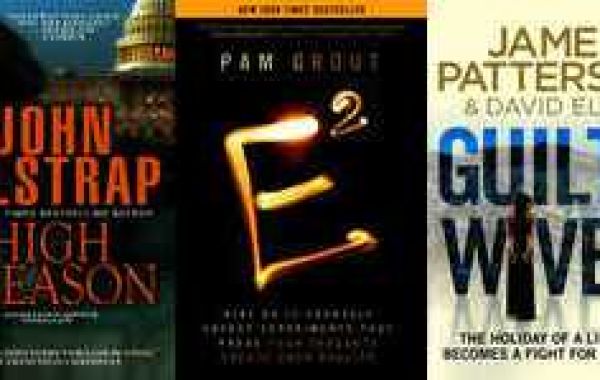Truth or No Truth
Logic is not the enemy of faith, but the foundation for it. Those who claim that Christians are the ones who blindly believe something without a sufficient basis are actually the ones who fit that claim. It is Biblical Christianity that has the rational, logical, and sufficient answers to the most important questions. The non-Christian is the one who must accept their belief system or worldview with a blind leap of faith apart from reality.
The scientific, proven law of causality requires everything that has a beginning to have a cause. This then, requires that the universe, which cannot be self-caused (physically impossible), or uncaused (first and second laws of thermodynamics negate the infinity of matter) must have been caused by something outside of it. Also, if the whole universe is uncaused, then why should we believe that all the parts are caused? If all the parts are caused, what evidence is there that the whole is uncaused? Causality also states that the cause is always greater than the effect. The cause must also adequately explain the phenomenon or effect.
Thus, there must be a non-material, personal, infinite, intelligent, powerful, uncaused cause that is the source of all creation, and this source must be sufficiently able to explain and govern the complexity of the natural order (laws of physics); and the personality of man, including the laws of logic and morality.
A false argument used by many is that anything that cannot be observed cannot be true or that anything that requires faith is not real or true. Of course no one actually observed that (it is propositional, not material), so how could it be true? Ideas are not physical, they are non-material. The brain does not think, it responds to thought. So using a non-material argument to prove that the non-material does not exist is self defeating and contradictory. If it is true then it is false. If it is false it cannot be true.
Stating that the moral standard is somehow immoral is like stating that it is wrong to say something is wrong. If it is true then you just did and it is false; if it is not true then it is false and the statement cannot be true. Moral law requires an absolute infinite reference point that is the standard to which all morality is related. Assuming a moral standard without having an adequate and infinite (unlimited and unchangeable) reference point is like trying to get a directional reading from a compass that never stops spinning. Any morality derived from a finite (limited and changeable) standard can always be changed or negated. It can never be asserted that one behavior is always right and one is always wrong. In actuality all behavior is rendered morally neutral so that even the charge of hypocrisy is nonsense and irrelevant. Moral laws are not composed of matter so if they are used this use must occur by faith in their existence.
So, we can safely state that there are things that are true but cannot be observed. Take the laws of logic and the preconditions of intelligibility. We all assume that our senses are reliable, and that what we observe of the world around us is true. We also assume that our memory is reliable, and that our thoughts correspond to reality. Also the laws of logic and morality are not descriptive, they are prescriptive. The laws of logic do not describe how we think, they prescribe how we "ought" to think. Same with the laws of morality. They do not describe how we behave, they prescribe how we "ought" to behave. Both require a non-material, non-changing source or they could not be unchangeable standards.
Biblical Christianity has this personal, perfect, unlimited, and unchangeable standard in God. All other standards or sources are limited or impersonal and therefore are an inadequate first cause or source.
To the one who thinks that everything came from the impersonal + time + chance (evolutionism); how can random chaos provide for the reliability of the senses, the reliability of the memory, and the laws of logic? Where did the laws of logic come from? Who first observed them before using them? How could they correlate, analyze, quantify and categorize their knowledge without first possessing and using them? What is their chemical make-up? What particles are they composed of? If one cannot give an answer then they can't be real, but if they can't be real why are they being used as if they were?
Within the impersonal, plus time, plus chance worldview; there is no basis or reason to attribute any meaning, structure, or purpose to your thoughts, ideas, and intentions. They are just meaningless chance chemical reactions in your brain that have no connection to anything or to anyone, including yourself. You may not actually exist. There is no reason to assume that you do, it could all be an illusion created by the chemical explosions in your head.
Yet this is not what people do. They go about their daily lives assuming that the infinite, personal God does exist. That He has given meaning to their thoughts, purposes, and intentions, even though they may use those very things to slander, mock, and deny Him.
Biblical Christianity has the only rational answers to the existence of the universe with it's order, form, and complexity (including the laws of physics; and the existence of man, with his/her personality, complexity, and desire for purpose, (including the laws of logic and morality).
So what would you rather trust in; blind random chance that can give no answers to the existense of the world, mankind, and meaning? Or the infinite, personal, intelligent, powerful, uncaused cause who created you and has given proof of His existence that can be reasonably explained, comprehended, and trusted?
“That there are what I or anyone would call supernatural forces at work is now, I think, a scientifically proven fact.” - Robert Jastrow (God and the Astronomers, W.W. Norton, New York, 1978, p. 111)
'In short, my discovery of the Divine has been a pilgrimage of reason and not of faith’
There is a God: How The World’s Most Notorious Atheist Changed His Mind by Antony Flew with Roy Varghese (p. 93). Harper Collins, New York, 2007
The 20th century’s most influential atheist thinker, Antony Flew, announced in 2004 that he accepted the existence of a God.
May you find the truth that can only be found in Him,
Jeff Exner
Ezekiel 33:1-6







